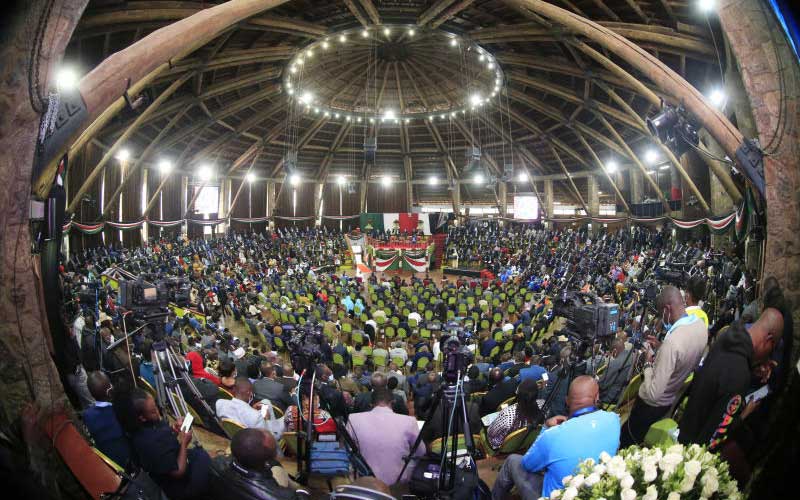×
The Standard e-Paper
Home To Bold Columnists

Delegates follow the launch of the Building Bridges Report at the Bomas of Kenya in Nairobi on October 26, 2020. [Stafford Ondego, Standard]
The stability of a nation is the anchor to its socio-economic progress. This truism was at the heart of President Uhuru Kenyatta’s address during the official launch of the Building Bridges Initiative (BBI) report at the Bomas of Kenya.